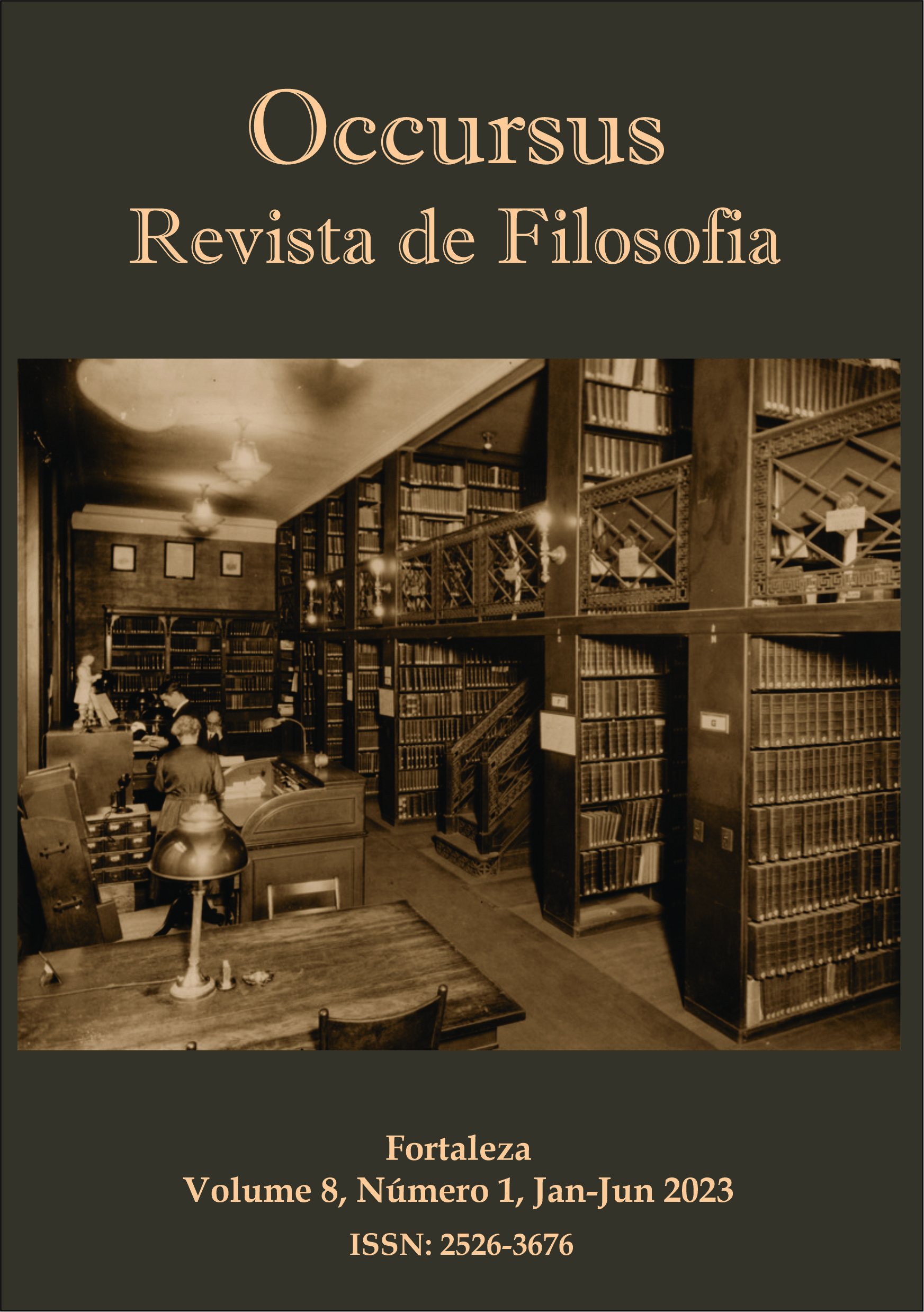Lightness and resistance according to Nietzsche:
how to say yes to life?
Keywords:
Becoming. Suffering. Affirmation. Chaos. Change.Abstract
In Genealogy of Morals, the philosopher Friedrich Nietzsche (1844-1900) argues that suffering is one of the causes why men reject life, marked by chaos and change. For the philosopher, this fear of suffering makes men prey to religions and priests, who reinforce their weaknesses, imputing deficiencies to them and poisoning them with promises of happiness in a lifetime and in a world to come. For Nietzsche, suffering, in some cases, is the reason why men refuse to affirm life, given that suffering makes them repel the most terrifying aspects of it, such as: the uninterrupted change of all things or the absence meaning for human existence. Opposing this ineptitude, not natural, but produced by culture, society and religions, the philosopher considers that it is possible to break with ideas, values and fight against the institutions that produce and sustain the weakness and ineptitude of man for the life. In general, Nietzsche presents a philosophical project that proposes an unlimited acceptance of life, which is feasible as long as suffering is treated as an opportunity for growth and the absence of meaning in existence as a possibility of creation. Therefore, the objective here is to demonstrate how Nietzsche's philosophy, in addition to destroying dogmas and idols, presents ways for man to become light and resistant in life and in the future, growing with obstacles and adversities, overcoming ideas and values that weaken them or reduce their fitness for life.
References
DIAS, Rosa Maria. Nietzsche, a vida como obra de arte. Rio de Janeiro: Civilização Brasileira, 2011.
GEN, Grupo de Estudos Nietzsche. Dicionário Nietzsche. São Paulo: Loyola, 2016.
GRAVES, Robert. Os mitos gregos. v. 1. Tradução de Fernando Klabin. 2. ed. Rio de Janeiro: Nova Fronteira, 2018.
MACHADO, Roberto. Nietzsche e a verdade. 3. ed. Rio de Janeiro: Paz e Terra, 2017.
MONTEBELLO, Pierre. O mundo na Terra. Tradução de Fabio Stieltjes Yasoshima. ed.1. São Paulo: Editora Unesp, 2021.
MOSÉ, Viviane. Nietzsche Hoje: sobre os desafios da vida contemporânea. 1. ed. Rio de Janeiro: Vozes, 2018.
NEPOMUCENO, Bruno. Nietzsche e a gargalhada dionisíaca: filosofia do riso e do cômico. Curtitiba: Appris, 2020.
NIETZSCHE, F. A gaia ciência. Tradução de Paulo César de Souza. 1. ed. São Paulo, Companhia das Letras, 2012.
ONFRAY, Michel. A sabedoria trágica: sobre o bom uso de Nietzsche. Tradução de Carla Rodrigues. Belo Horizonte: Autêntica, 2014.
SOUZA, Mauro Araújo de. Nietzsche: viver intensamente, tornar-se o que se é. 1. ed. São Paulo: Paulus, 2009.
SOUZA, Mauro Araújo de. Nietzsche Asceta. 1. ed. Ijuí: Ed. Unijuí, 2009.
NIETZSCHE, Friedrich. Assim falou Zaratustra: um livro para todos e para ninguém. Tradução de Paulo César de Souza. 1. ed. São Paulo: Companhia de Bolso, 2018.
NIETZSCHE, Friedrich. Ecce Homo: como alguém se torna o que é. Tradução de Paulo César de Souza. ed. 1. São Paulo: Companhia das Letras, 2008.
NIETZSCHE, Friedrich. Genealogia da moral. Tradução de Paulo César de Souza. ed. 1. São Paulo: Companhia das Letras, 2009.
NIETZSCHE, Friedrich. Genealogia da moral. Tradução de Mário Ferreira dos Santos. ed. 1. Rio de Janeiro: Vozes, 2017.
NIETZSCHE, Friedrich. O nascimento da tragédia: ou Helenismo e Pessimismo. Tradução de J. Guinsburg. São Paulo: Companhia das Letras, 2007.
Downloads
Published
How to Cite
Issue
Section
License
Copyright (c) 1969 André Pereira da Silva

This work is licensed under a Creative Commons Attribution 4.0 International License.




